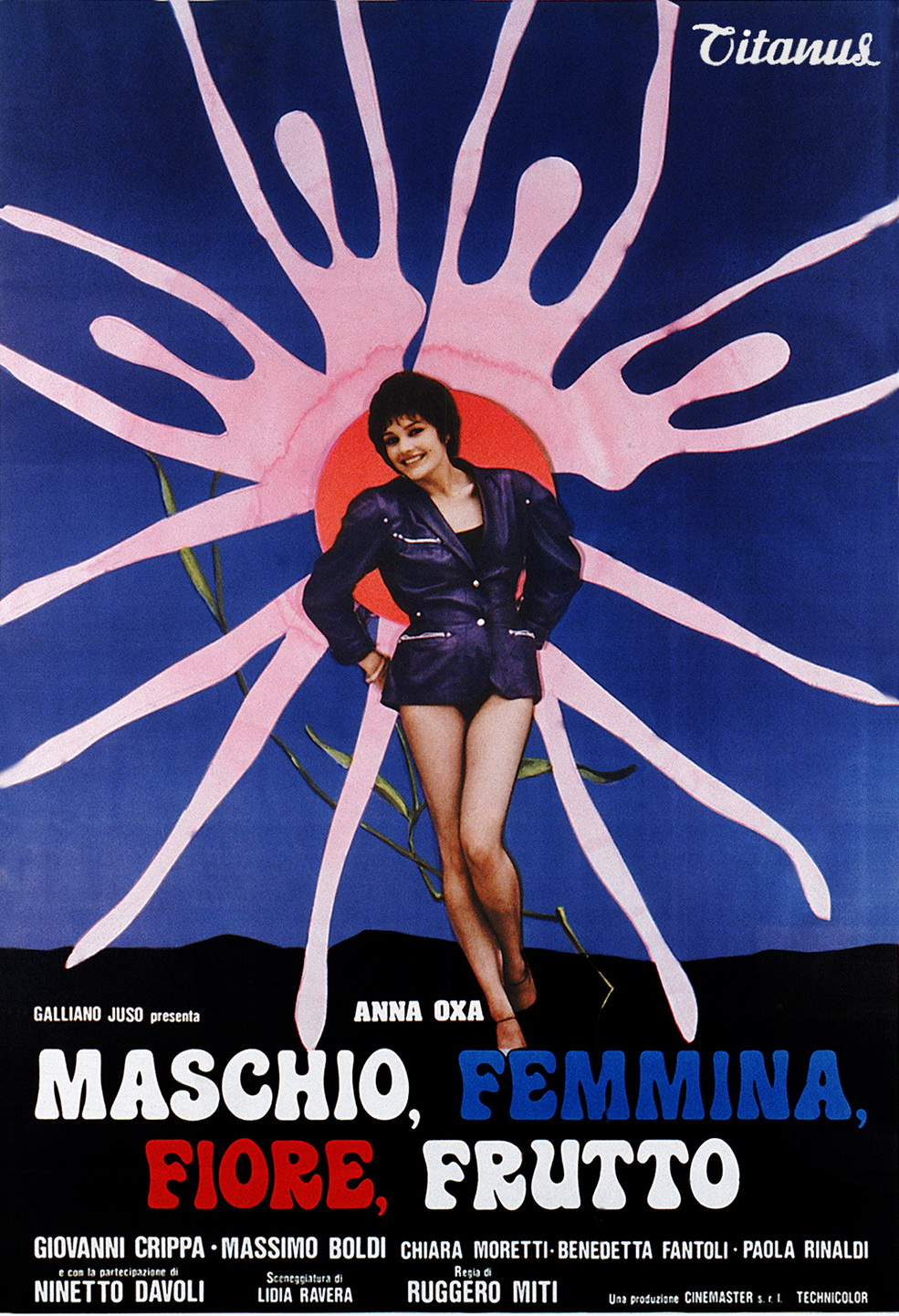A musical with a unique character, infused with the youthful fervour of the late ’70s
Anna Oxa, the new icon of Italian music, plays twins: a boy and a girl
In 1978, 17-year-old Anna Oxa, born in Bari, got on the stage at the Sanremo Festival and performed a song that became an Italian pop classic (Un’emozione da poco). Her punk-influenced look, wearing feminine make up while posturing in a man’s suit and tie, caused a lot of talk. The androgynous effect and the success of the song, led to a cinematic adaptation of the musical phenomenon. Anna Oxa takes on two roles, a brother and sister, both tired of their suffocating life in Southern Italy and ready to go to the Rome to follow their artistic dreams. The film, written for the screen by Lidia Ravera and containing autobiographical elements, undoubtedly has some curious aspects that make it a unique work for fans of rare gems. As well as serving as a vehicle for the multiple talents of its star, it also documents the social fervour of youth at the time, with feminists, drug-dealers, Buddhists, gays, hippies and disco music.
Twins Anna and Tony leave their hometown in Southern Italy to achieve fame and fortune in Rome. She wants to be a singer, he wants to be a dancer. They get separated, but in the end they find a producer who decides to give them both a shot at the big time.
A musical with a unique character, infused with the youthful fervour of the late ’70s
Anna Oxa, the new icon of Italian music, plays twins: a boy and a girl
In 1978, 17-year-old Anna Oxa, born in Bari, got on the stage at the Sanremo Festival and performed a song that became an Italian pop classic (Un’emozione da poco). Her punk-influenced look, wearing feminine make up while posturing in a man’s suit and tie, caused a lot of talk. The androgynous effect and the success of the song, led to a cinematic adaptation of the musical phenomenon. Anna Oxa takes on two roles, a brother and sister, both tired of their suffocating life in Southern Italy and ready to go to the Rome to follow their artistic dreams. The film, written for the screen by Lidia Ravera and containing autobiographical elements, undoubtedly has some curious aspects that make it a unique work for fans of rare gems. As well as serving as a vehicle for the multiple talents of its star, it also documents the social fervour of youth at the time, with feminists, drug-dealers, Buddhists, gays, hippies and disco music.
Twins Anna and Tony leave their hometown in Southern Italy to achieve fame and fortune in Rome. She wants to be a singer, he wants to be a dancer. They get separated, but in the end they find a producer who decides to give them both a shot at the big time.
